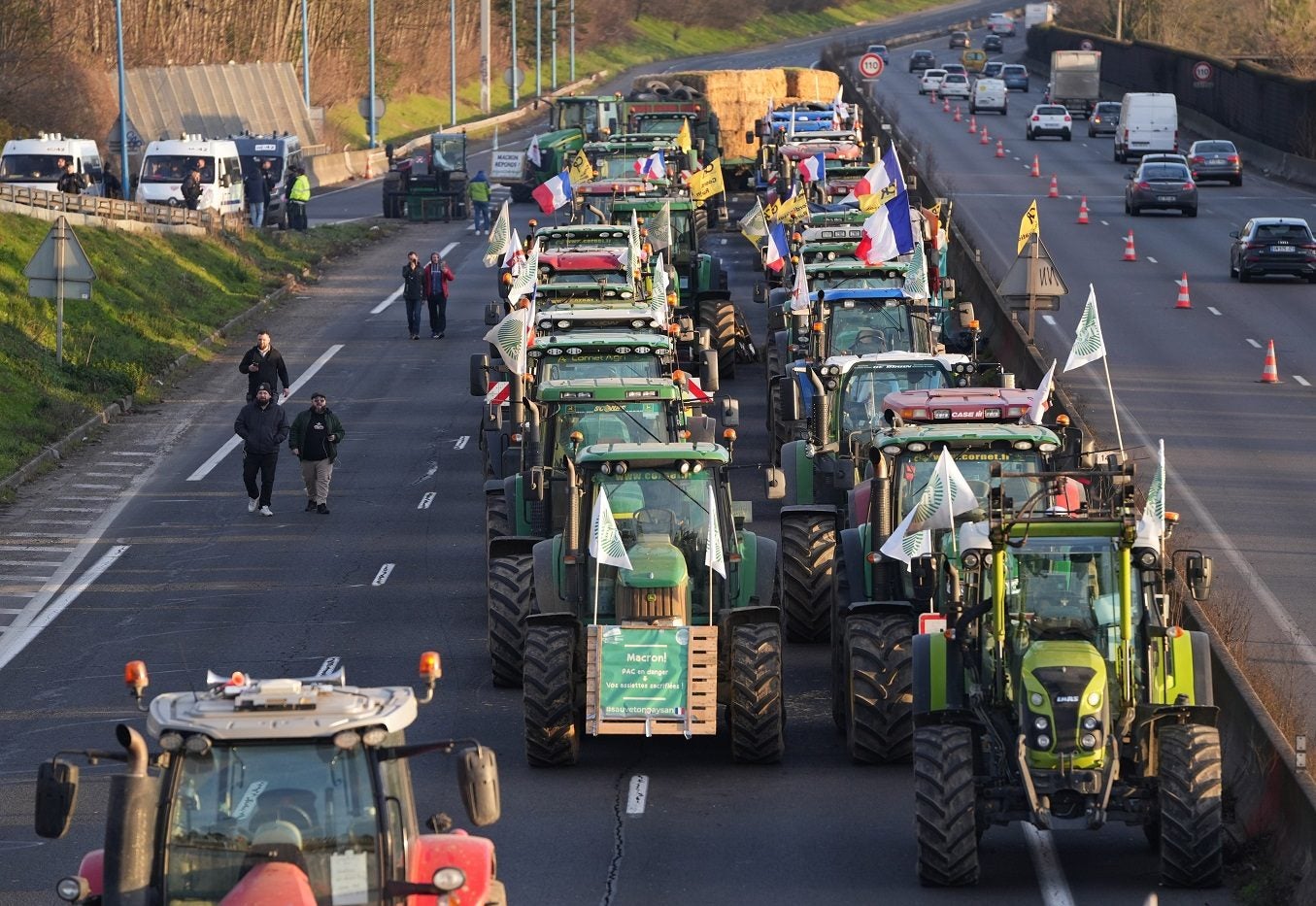
Farmers from Spain and France have blocked border crossings between the two countries to put pressure on legislators ahead of the forthcoming EU elections.
In the latest wave of protests, which date back many months, farmers blocked roads along the border through the Pyrenees mountains yesterday (3 June) to draw attention to issues affecting the bloc’s agri-food sector.

Discover B2B Marketing That Performs
Combine business intelligence and editorial excellence to reach engaged professionals across 36 leading media platforms.
Spearheaded by organisations including Revolta Pages and Unaspi, the protests – which continued today in Brussels – are taking place as the European Parliament elections approach on Thursday.
Farmers are unhappy about what they see as unfair competition from cheap imports from outside the EU, as well as rising costs and taxes, red tape and what they perceive to be excessive environmental regulations.
The latest protests have been organised independently from the Continent’s major agricultural associations.
Copa-Cocega, an organisation representing 22 million farmers in the EU, met with European Commission President Ursula von der Leyen at the end of April “to take stock of the situation as the 2019-2024 mandate draws to a close and to discuss the strategic repositioning of agriculture at the centre of European policies based on the organisation’s manifesto for the European elections”.

US Tariffs are shifting - will you react or anticipate?
Don’t let policy changes catch you off guard. Stay proactive with real-time data and expert analysis.
By GlobalDataJust Food has asked the organisation whether it supports yesterday’s protests by farmers.
The EU has already made a number of concessions to farmers following earlier protests.
In March, it agreed to limit the import of grains from Ukraine.
A month earlier, it watered down its Green Deal by scrapping a proposed rule to cut the use of pesticides in agriculture.
And in May it agreed to extend farming subsidy allowances by six months.





